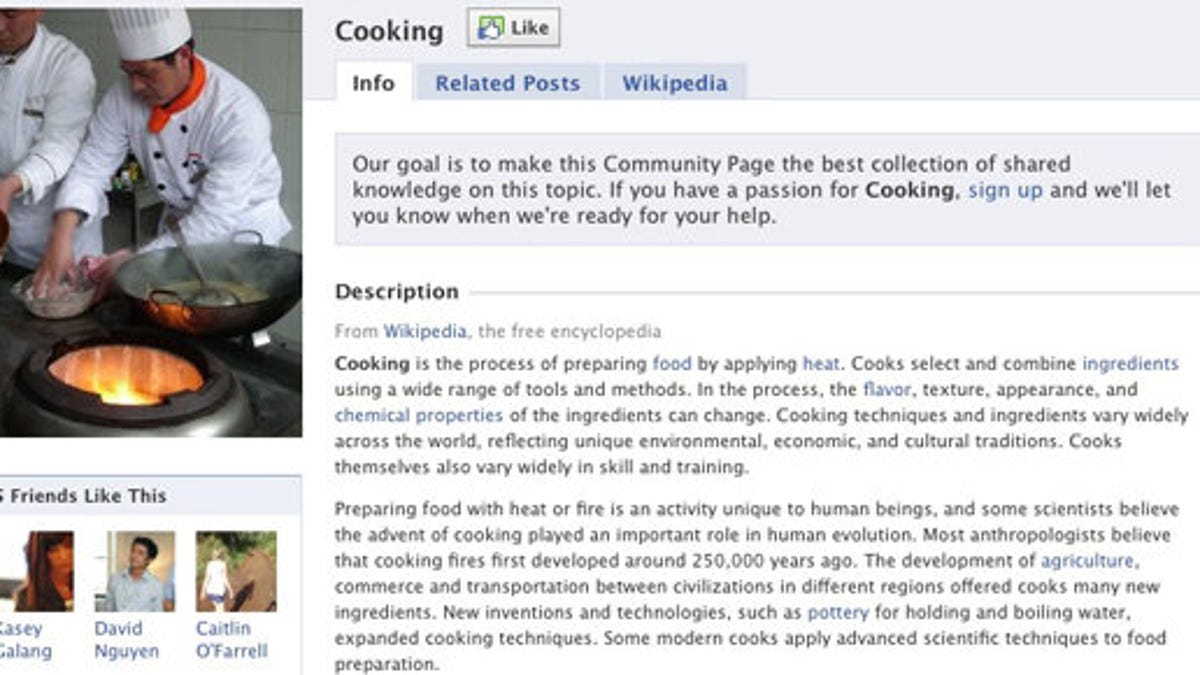Facebookipedia? Here come 'Community Pages'
An odd new feature on the social network that goes beyond brands' fan pages, the "Community Pages" are designed to be "the best collection of shared knowledge" on a given topic.

It might not seem like much, but a Monday announcement from Facebook to unveil its new "Community Pages" feature is one of the boldest steps that the social-networking site has taken toward, well, consuming your life.
"Community Pages" take the concept of a Facebook "fan page" and apply them to concepts, places, and ideas, rather than brands. An announcement at the top of Facebook's prototype community page for "cooking" explains that it aims to be "the best collection of shared knowledge on this topic," and sources quite a bit of content from Wikipedia. "You'll be able to learn more about a topic or an experience--whether it's cooking or learning a new language--and see what your friends and others in the Facebook community are saying about this topic," a post on the Facebook blog explains. "We're starting by showing Wikipedia information, but we're also looking for people who are passionate about any of these topics to sign up to contribute to the page. We'll let you know when we're ready for your help."
This new feature is also manifesting itself in ordinary members' Facebook profiles: they're now encouraged, thanks to a dialog box that pops up on their profiles, to "like" community pages that tie into what's already entered into their profiles. They can connect to the community pages for their hometowns and schools, and convert the "interests" entered in their profiles to link to pages.
The announcement comes just a few days before Facebook's third F8 developer conference, and right around the same time that Facebook is transitioning its "Become a Fan Of" language to simply "Like" in anticipation of launching a "Like" button that can be distributed anywhere on the Web.
This might seem like it's a bit out of left field. Most of Facebook's recent feature developments have tied into one of two recent fads in social media: real-time streaming information a la Twitter, and social gaming, the biggest breakaway hit on Facebook's platform. (A third buzz-worthy niche, geolocation, is also in Facebook's crosshairs.)
But here, Facebook looks like it's actively treading into a territory that few companies have explored other than Wikipedia and Google, the latter of which maintains a corporate mission of "to organize the world's information and make it universally accessible and useful." It's not quite clear just how Facebook will scale community pages so that they don't devolve into a sort of user-generated content purgatory, but right now it looks like it could lead to an explosion of new, searchable content on the Facebook.com domain.
To the ordinary Web user, a stream of random, real-time information looks downright sloppy in comparison.

